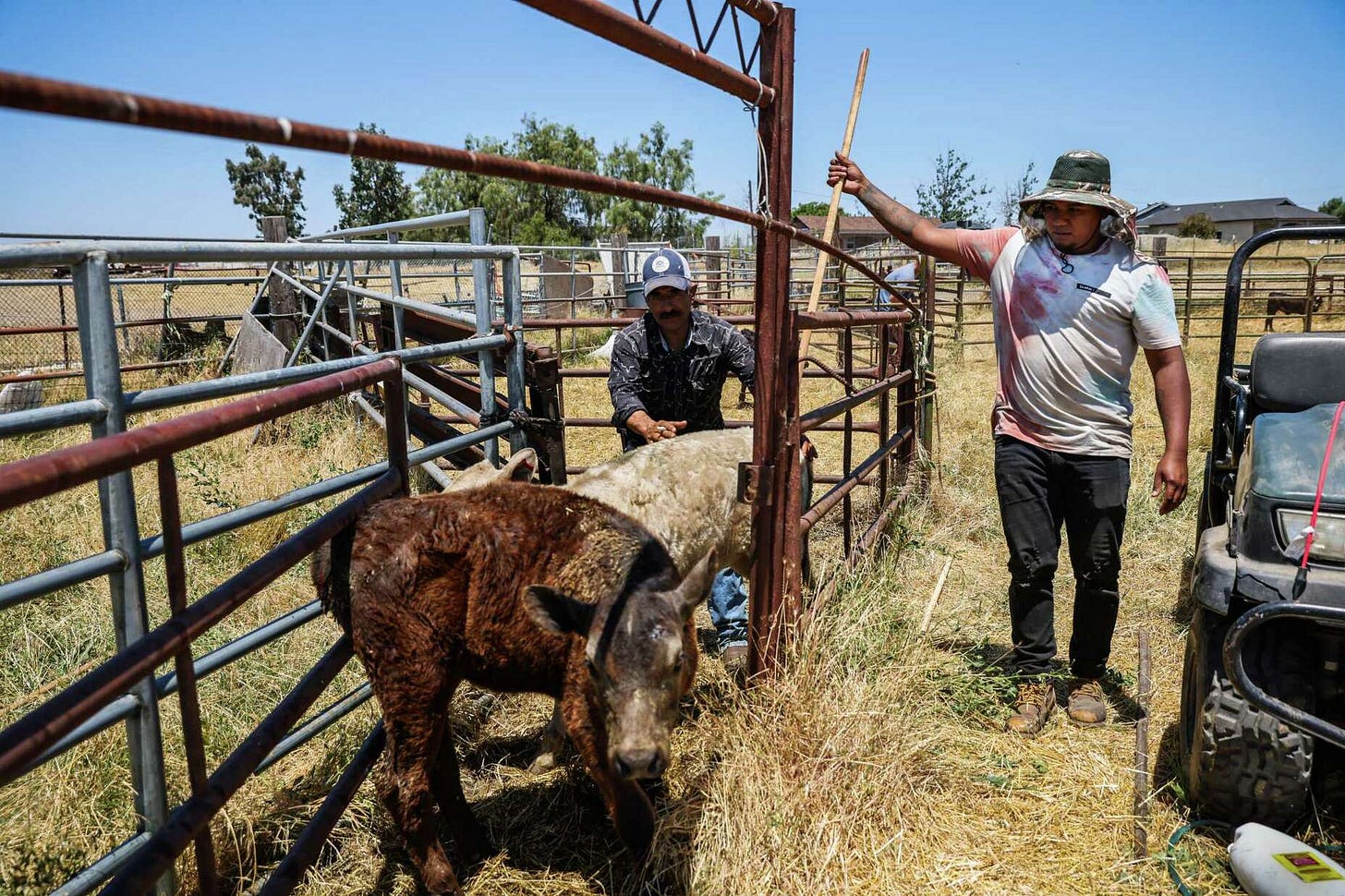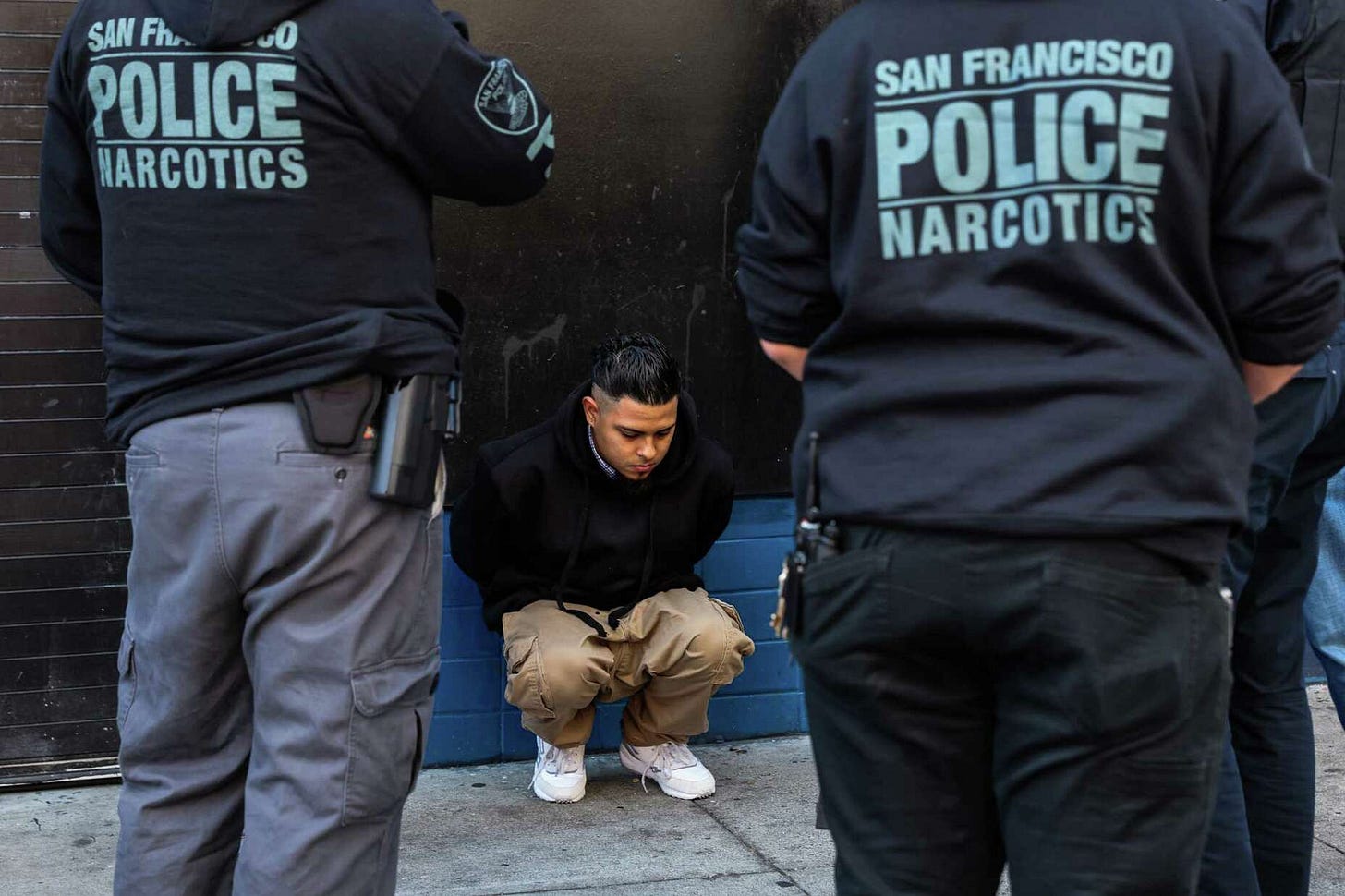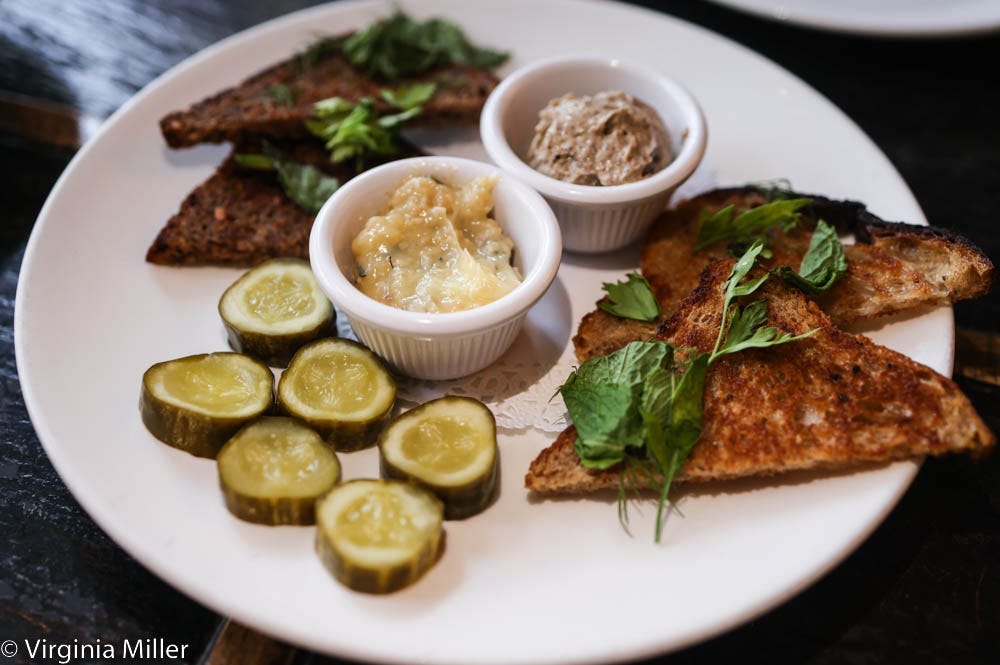The GrowSF Report: Fentanyl crisis special report
PLUS: San Francisco Budget Explainer
What You Need To Know
Here’s what happened around the city for the week of July 10, 2023:
- Fentanyl crisis special report
- 7 more reasons to Dump Dean Preston
Fentanyl crisis special report
Megan Cassidy and Gabrielle Lurie at The Chronicle released a bombshell investigative report into San Francisco’s fentanyl crisis this week, and it’s a must-read for anyone looking to better understand what’s going on in our city. But if you don’t have a few hours to read it all, we’ve summed it up for you below.
The hometown of SF’s fentanyl dealers: Siria Valley, Honduras

Step foot in a small town in the Siria Valley of Honduras and you’ll be welcomed by familiar sights: SF Giants logos emblazoned on fences, the Golden Gate Bridge painted in murals, Warriors emblems displayed with pride on new mansions, and yes even rapidly rising property values. These homages to San Francisco are funded by money sent home by fentanyl dealers.
The majority of the Honduran dealers in San Francisco are from the Siria Valley, according to multiple dealers and court records, with many coming from the same families or having grown up together in the same small villages.
— This and excerpts below by Megan Cassidy in The Chronicle
It is important to note that the vast, vast majority of immigrants from Central and South America are good, upstanding people who work hard and make America what it is. Our country is made better by them, and all immigrants from every nation.
We can have both an open, pro-immigrant country and city while also enforcing our laws against fentanyl dealing. An important part of doing that is first understanding the problem. Sadly, we make it too difficult to legally immigrate and find work, which some of the dealers say pushed them to start dealing.
The dealers interviewed ranged in age from 21 to 68 and had varying amounts of experience in the drug trade. Some said they did lawful work in the U.S. before becoming dealers, while others said they migrated to the Bay Area intending to sell drugs.
Some of the dealers said they’d prefer to work legally. But most said they are noncitizens without proper paperwork or the education required to land high-paying work in the U.S. Many left school before age 10.
[…]
Of the 25 dealers interviewed, most said they were not trafficked or were unaware of anyone being forced to sell drugs.
But as difficult as we make it for people to immigrate legally, the barriers we’ve erected to deporting criminals means we keep dealers here, consequence free.
San Francisco’s status as a sanctuary city makes it more attractive to the Honduran dealers, some of them said, because it means a lower risk of lengthy jail time and deportation if convicted.
[…]
[O]ne Honduran dealer said many choose to work in San Francisco because they’re less likely to be deported. Another dealer interviewed in El Pedernal echoed this sentiment, estimating that half of the dealers from the municipality sell in San Francisco.
“The reason is because, in San Francisco, it’s like you’re here in Honduras,” he said. “The law, because they don’t deport, that’s the problem. … Many look for San Francisco because it’s a sanctuary city. You go to jail and you come out.”
Sanctuary city laws are meant to protect law-abiding residents whose only crime is lacking proper documentation. They were never intended to coddle people committing felonies and peddling death and destruction, but here we are. Our failure to enforce our laws against felony fentanyl dealing is putting the lives and livelihoods of law-abiding immigrants at risk.
Cris Ramón, incoming senior policy adviser for UnidosUS, an immigration policy project, said the pipeline from the Siria Valley to San Francisco’s drug trade is an economic pattern that’s also found in legal job markets, particularly for immigrant groups: People follow people.
“It just so happens that we’re now dealing with illicit drugs,” he said. “And that’s where it’s hugely problematic.”
Crime pays

Some people believe dealers are just fundamentally bad people; that they’re doing crimes because it’s in their nature. We disagree. People do crimes because crime pays.
“It’s true. I am not going to lie,” [Marcio Amado Arteaga Escolo] said. “I was doing it because, as I told the police sincerely, I did not have work. … If I had work I would not be doing these things. … I had no way to pay rent. I went to the streets to sell drugs.”
— This and excerpts below by Megan Cassidy in The Chronicle
The question we should try to answer is: what do we need to do to make crime unprofitable? Street dealers and their bosses are immoral, but rational: they won’t do something if they lose money. So to make sure the fentanyl market doesn’t pay, we must understand how the market works.
The Chronicle’s investigation found no evidence of drug kingpins among the Honduran migrants in San Francisco. The dealers work as a network of affiliates, which keeps the police from being able to cripple the operation with one key arrest.
The cartels hire runners to ferry their product from Mexico to Southern California[…]
These operatives are the highest-ranking members of the Bay Area network and are the middlemen in this global operation. The operatives are known to their underlings as “the machine,” according to two sources.
To disrupt the fentanyl trade in San Francisco requires more than arresting the street-level dealers, we also need cooperation from the State and Federal agencies. But saying we need help from higher up doesn’t absolve us of our responsibility to keep the streets in the Tenderloin and other neighborhoods safe and clean. Sure, a street dealer who is arrested will be replaced, but every replacement and drug seizure raises the cost of doing business, and we’re happy to see enforcement ramping up.
We must raise the cost of dealing above what can be run profitably, arrest & prosecute everyone who plays a role in this network of death and despair, and extradite and imprison the kingpins running the show.
On dozens of occasions over the course of reporting this story, Chronicle journalists were able to observe how the dealers work the streets in the Tenderloin and South of Market.
They operate in shifts, with younger dealers sticking together, in groups of about 10, both for socializing and protection, the dealers interviewed confirmed. The groups aren’t tethered to certain corners, sometimes migrating a few blocks away when police are nearby.
Still, they are highly visible. Many look like they should be in high school, their clean Nikes standing out amid the human misery that drives the business.
Some of the dealers say they’d prefer to do something else and maybe can be reformed — after all, they’re just selling for the money.
“I like to work in roofing, construction, the kitchen, whatever,” one 21-year-old man said in a recent interview. “I’ll work on whatever as long as it’s my job.”
So after serving their time for the death and misery they have wrought, helping them find legitimate work once they’re out may help stop the cycle of destruction.
Why is it so hard to solve?

Millions of dollars in City interventions couldn’t get Melvin Lopez to quit dealing, but in 2020 he hung it up and now works a bevy of part-time jobs like retail and on a farm (pictured above). So what convinced him to quit?
Lopez said his career change was a personal decision. He was troubled by the damage that his drugs were inflicting on users, and he was descending into alcohol addiction himself. Taking a gunshot to the chest in the course of his dealing solidified his decision.
— This and excerpts below by Megan Cassidy for The Chronicle
Francisco Ugarte, who manages the Immigration Defense unit at the SF Public Defender’s office, argues that just giving addicts medical care and housing would make the dealers just give up and stop dealing. GrowSF finds this assertion detached from reality. It would be laughable if not for the destruction this mindset enables.
This single-minded focus on treating everyone as a victim rather than holding people accountable for their actions has been destructive for our city. Some people just need medical intervention, yes, but dealers and violent people need incarceration.

“This is the epidemic. It needs to be handled as such,” [Mayor Breed] said. “There’s not a one-size-fits-all, but law enforcement is a critical part of the equation. And we need dramatic change in terms of how we approach this issue, and we need support from the federal level.”
Mayor Breed, SFPD Chief Scott, and District Attorney Brooke Jenkins are all working together on an all-hands-on-deck and all-solutions-tryable approach. It’s a nice departure from the days of DA Chesa Boudin when Boudin’s office antagonized the Mayor and SFPD and refused to charge crimes. But San Francisco is still struggling to meet the demands of its residents.
On a recent evening in mid-June, the voice of a San Francisco park ranger thundered through United Nations Plaza as crowds packed up and moved eastward.
“You cannot sell drugs here! You can’t sell laundry soap! You can’t do anything crazy like doing any vending,” the ranger bellowed between blows of his whistle. “Move it along, and have a wonderful night. We will see you tomorrow.”
[…]
[A] dealer said he had heard about the recent crackdown on the news, and shrugged when asked whether he was concerned about it.
“Nothing changes,” he said. “I think they use a lot of cops, but around here it’s the same.”
One thing is abundantly clear: voters are tired of the mayhem, and November 2024’s election will be determined by the progress elected leaders are able to make.
7 more reasons to Dump Dean Preston
Last week we launched our “30 reasons to Dump Dean Preston” campaign, and gave your our first seven reasons. Now we’re back with the next seven. As always, follow along on Twitter, or just stay subscribed to the GrowSF Report.
The theme this week was public safety.
Reason #8: Dean Preston doesn't listen to Tenderloin merchants
Reason #9: Dean Preston voted against the Tenderloin Emergency Initiative
Reason #10: Dean Preston wants to defund the police and abolish prisons
Reason #11: Dean Preston voted against having SFPD develop a full-staffing hiring plan, even when we are short about 1,000 officers
Reason #12: Dean Preston Dean called President Biden a "national disgrace" for bipartisan police funding
Reason #13: Dean Preston voted against overtime funding for understaffed & overworked SFPD
Reason #14: Dean Preston opposes arresting fentanyl dealers
Love the GrowSF Report? Share it
Help GrowSF grow! Share our newsletter with your friends. The bigger we are, the better San Francisco will be.
Your Action Plan
Now that you know what’s happening, help us shape what happens next:
Show Me the Money: San Francisco City Budget Explainer
Join GrowSF, the United Democratic Club, and the Westside Family Democratic Club for an informative evening about the City’s budget.
WHEN: Wednesday, July 26 at 6:30 PM
WHERE: Unity Center of San Francisco, 2690 Ocean Ave
San Francisco has a $14B annual budget. Where does all that money go?
The Board of Supervisors and the Mayor’s office just finished negotiations for the SF city budget for fiscal year 2024 and 2025 and we have a lot of questions. What got funded? What got cut? Given all the news about a "doom loop" and businesses leaving the city, how did we balance the budget?
Sophia Kittler, Director of the Mayor's Office of Innovation, will be joining us to explain the big changes in this budget agreement and to answer your questions.
The Spirit of San Francisco
There’s a lot to love about our city and the Bay Area. Here’s what makes it great. Brought to you by The Bold Italic.
What we’re doing this week
Hayes Valley Carnival
Get ready for a carnival extravaganza — Kids of all ages will be entertained with a wide variety of activities, including live music, food, and carnival games. The highlight of the event will be two performances by Circus Bella and the Circus Bella All-Star Band at 1 pm and 3 pm.
WHEN: Today, July 15th from noon to 4 p.m.
WHERE: 432 Octavia St., San Francisco 94102
Coit Tower “The Candle” Laser Show
Created by arts non-profit Illuminate, the three night installation named “Candle” will officially begin when darkness falls on Friday night (estimated time: 9:20 pm). It will continue from sunset to sunrise for three nights through Sunday.
What we’re writing about
Why I miss San Francisco
“For years, I complained to family, friends, my therapist, and strangers on the street about how badly I wanted to get out of San Francisco. Ten years in the city had taken its toll on me, and when the pandemic hit, I made the move to Los Angeles for grad school. So why do I miss this place so much?” Tara Vega writes about what makes San Francisco great, and why she wants to come back.
SF’s new Gambit Lounge: A wine bar with rare European eats
Gambit Lounge is a new Hayes Valley spot that quietly opened November 2022 to strong user reviews but under-the-radar buzz, in the former Noir Lounge wine bar. Gambit continues the wine bar vibes, but also brings in Central and Eastern European food that’s hard to come by in San Francisco.
I saw Les Misérables for the very first time, and it was just okay
Is Les Misérables worth seeing? Absolutely, if you like singing and dancing, war, prostitution, death, and girls being kept on the hook. This is the touring Broadway production, so the only real critique we can muster is they were too polished. One scene transitioned quickly into the next, and the next, with huge sets of stone buildings, Wrought iron fences, sewers, and taverns; and tons of smoke and bright lights.
Want more positive news? Subscribe to The Bold Italic
Get some good vibes in your life by subscribing to The Bold Italic. It’s the sister project to GrowSF which focuses on what makes San Francisco a great place to live.







